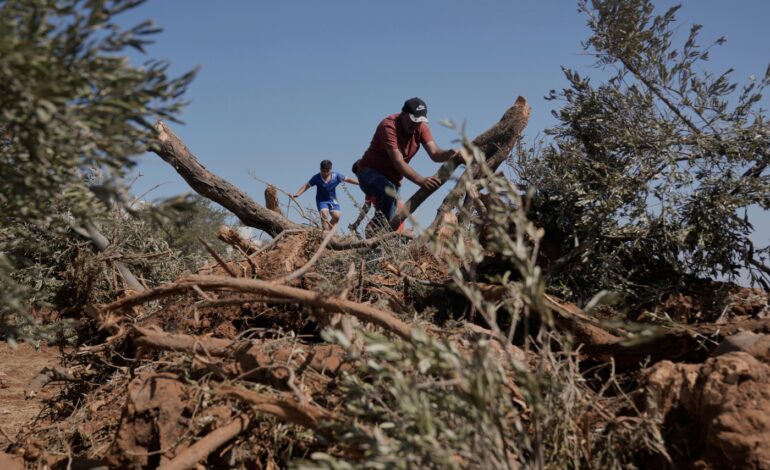Settlement Violence in West Bank: A Call for Global Outrage

Sam Fleischacker, a liberal Zionist and distinguished professor at the University of Illinois, has reported firsthand experiences of escalating settler violence in the West Bank. He spent June 2023 volunteering with human rights groups, including Rabbi Arik Ascherman’s organization, Torat Tzedek, where he served as a protective presence for Palestinian villagers facing harassment from Israeli settlers.
During this period, Fleischacker observed that the persistent low-level harassment inflicted by settlers is as detrimental to the Palestinian population as the ongoing conflict in Gaza. He worked primarily in a small Bedouin village where settlers have pressured residents to abandon their homes. Their tactics included grazing sheep on village lands, holding early morning prayer services, and entering homes uninvited. These actions, while seemingly minor, contribute to a broader strategy of ethnic cleansing, as they challenge the very existence of Palestinian communities.
Fleischacker recalled an incident in which a settler displayed a firearm in front of children in a village square for hours. The role of nonviolent activists like Fleischacker and his colleagues was to document these incidents and report them to the authorities. Despite their peaceful approach, they faced aggression from settlers, with one incident resulting in Rabbi Ascherman sustaining injuries from a rifle butt after settlers fired guns near women and children in a playground.
The underlying question driving the settlers’ actions, as highlighted by the extreme right-wing Israeli leader Itamar Ben-Gvir, is “Who is the homeowner here?” According to Ben-Gvir and the settlers, the answer is unequivocal: Jews have ownership over all land, dismissing the rights of Palestinians, Bedouins, and non-Jews. This ideology manifests in various forms of harassment, from disruptive prayer services to outright violence.
In recent weeks, incidents of settler violence have escalated, with reports of Palestinians being killed and properties damaged. The Israeli police and military have been criticized for their inadequate response. Activists report that the authorities often arrest Palestinians or those opposing settlers rather than the settlers themselves. Notably, the settlers involved in assaults, including the one on Ascherman, were released shortly after their arrests.
While the violence in Gaza has drawn significant international condemnation, the subtler forms of harassment in the West Bank often go unnoticed. Fleischacker emphasizes that these actions, although less overtly violent, are effective tools for driving Palestinians from their lands and should elicit equal outrage.
The ongoing situation in the West Bank calls for greater global awareness and action, as the systematic efforts to displace Palestinian communities continue largely under the radar. As these events unfold, the international community is urged to recognize the gravity of the situation and respond accordingly.






